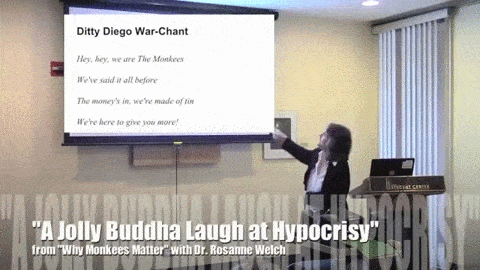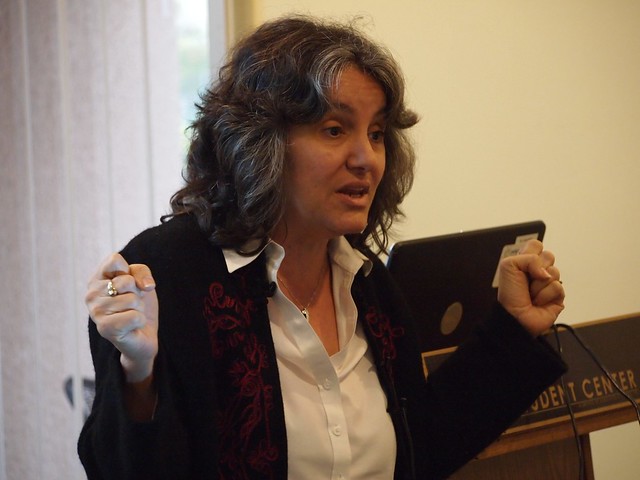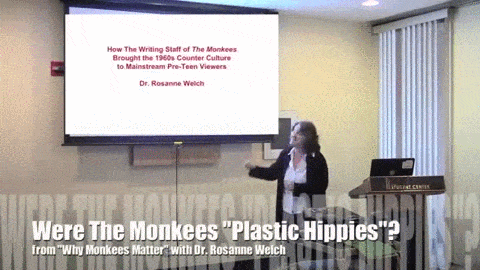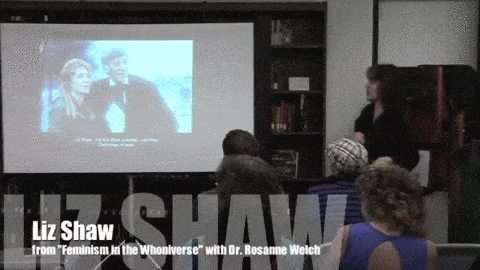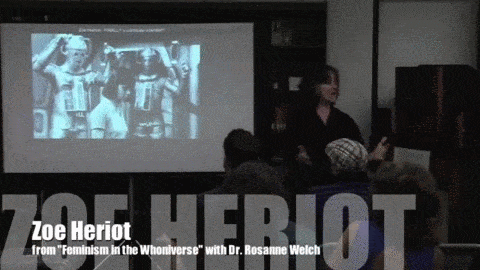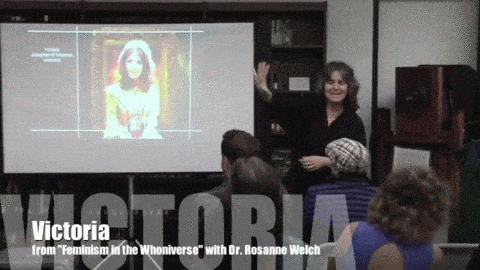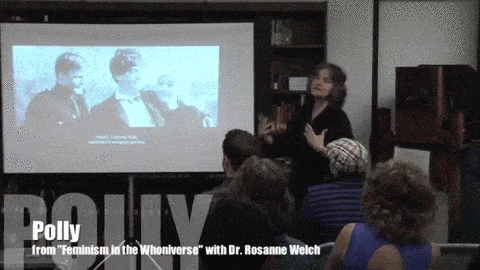Dr. Rosanne Welch presents Why Monkees Matter: How The Writing Staff of The Monkees Brought the 1960s Counter Culture to Mainstream Pre-Teen Viewers at the 2014 Cal Poly Pomona Provost’s Symposium on Faculty Scholarship (http://www.cpp.edu/~research/)
Transcript:
In their film, “Head”, they wrote a song that riffs on their opening theme which was “Here we come, walking down the street…” right? They wrote, “hey, Het we’re The Monkees, We’ve said it all before, The money’s in, we;re made of tin, We’re here to give you more!” So, they were admitting their own plasticness and I think that’s their mistake. The fell for what was being said about them and forgot what they, themselves, were contributing. Right? Someone who didn’t miss out on that is Timothy Leary. He was the big, famous, so of hippy doctor and in his book, “Turn on, Tune In and Drop Out” he discussed the importance of The Monkees and this is in their very own time period. Right in the early — late Sixties, excuse me, 67. He’s discussing how important they were. In fact, he says the show is much more than a comedy. It’s all these things together. My favorite one is “A Jolly Buddha Laugh at Hypocrisy.” Which, in fact, is what is going on. These boys are commenting on hypocrisy of the parents of their customers — of their viewers — and they’re doing it right on mainstream American television.
View photos from this presentation
Description:
Based on a chapter in my upcoming book The Metatextual Menagerie that was The Monkees, which includes a series of interviews conducted with surviving writers and performers of the 1960s television program, The Monkees I will discuss how the writers and actors used the show as a platform for their own emerging counter culture/anti-war messages.
Worth studying for its craft and place in television history (the show won an Emmy as Best Comedy Of 1967) the program’s true importance may come from its impact on the politics and culture of the era. Considered innocuous by the network, thepress and the parents of the era, the storylines and jokes created by the writers and the actor’s ad-libs brought the emerging counter-culture to the attention of young teens whose parents might not have appreciated the message. Cultural icons such as Timothy Leary recognized the subversive nature of the program, seen through the writing and in choices made about costuming, hair length, musical guests (Frank Zappa, Tim Buckley, Charlie Smalls) and songs performed by the band brought issues of Vietnam, voting and civil rights to the ‘young generation’ for whom the show clearly had ‘somethin’to say.
Subscribe to Dr. Welch’s YouTube Channel
About the Symposium:
The 2014 Provost’s Symposium is a forum to learn about each other’s scholarly work, make new friends, renew old acquaintances, and enhance our appreciation of the rich and diverse array of professional endeavors pursued by the faculty at Cal Poly Pomona.
Podcast: Play in new window | Download
Subscribe: RSS
